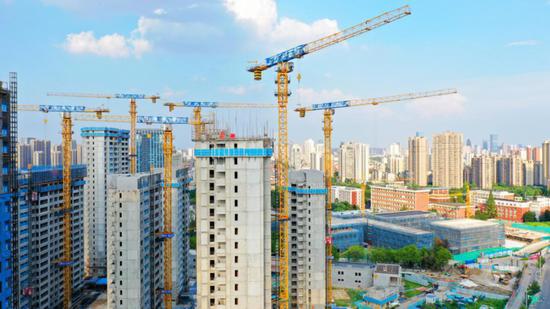
A residential property project is under construction in Hefei, Anhui province. (CHEN SANHU/FOR CHINA DAILY)
China's real estate industry is expected to stabilize gradually amid stronger policy support for reducing inventories, improving new supplies and easing liquidity stress of developers, as the country accelerates the establishment of a new development model for long-term high-quality development of the sector, experts said.
Latest data from the National Financial Regulatory Administration showed on Wednesday that commercial banks have reviewed 5,392 projects on the so-called white list. The list recommends real estate projects eligible for financial support from financial institutions since the launch of the urban real estate financing coordination mechanisms in the first quarter.
Approximately 1.4 trillion yuan ($200 billion) has been approved for financing such selected projects.
Real estate remains a key industry for the Chinese economy, and urgent improvement to the balance sheets of real estate companies is needed, said scholar Zhang Yansheng.
"To establish a new and better development model in the real estate sector, it is crucial to effectively balance the functions of housing as a commodity as well as a key factor for improving people's livelihoods," Zhang said, adding that ensuring such a balance will be a focus of policy orientations for next step.
While new urbanization will provide new growth points for the real estate industry, it is essential to clarify the division of responsibilities and financial obligations between the central and local governments, as well as ensure stable economic growth, he said.
At a meeting held by the Political Bureau of the Communist Party of China Central Committee on July 30, Chinese leadership stressed it is important to reduce inventories and optimize new housing supply. The purchase of existing commercial housing for use as affordable housing should be actively supported.
Work must be done to ensure the delivery of pre-sold homes, and accelerate the establishment of a new development model for the real estate sector, according to the meeting.
Wang Xingping, senior analyst of corporates at ratings agency Fitch Bohua, said he expects the Chinese authorities to not only continue to support property financing but also focus on promoting sales and reducing property inventories.
"Measures may include further relaxing home purchase qualifications in high-tier cities, lowering the cost of home purchases, and increasing home purchase subsidies," Wang said.
"An L-shaped recovery is anticipated. However, this recovery trend will be jointly determined by policy support, restoration of market confidence, and differentiated development among cities."
Zhang Ming, deputy director of the Chinese Academy of Social Sciences' Institute of Finance and Banking, said that in an optimistic scenario, the slide in property prices in first- and second-tier cities may stop in the second half of the year.
"If people expect that home prices in first- and second-tier cities have bottomed out, much of the pent-up demand will find release," he said.
"The governments of first- and second-tier cities need to adjust their approach. They shouldn't ease policies bit by bit but implement a comprehensive relaxation at one go and signal to the market that these policies won't be changed for the next three to five years."
Liao Yuanyuan, director of the Statistics and Risk Surveillance Department of the administration, said at a news conference on Wednesday that the NFRA will collaborate with all departments concerned to continue pressing local governments, property developers and financial institutions to "shoulder their responsibilities "and "enhance the effectiveness of the urban real estate financing coordination mechanisms".













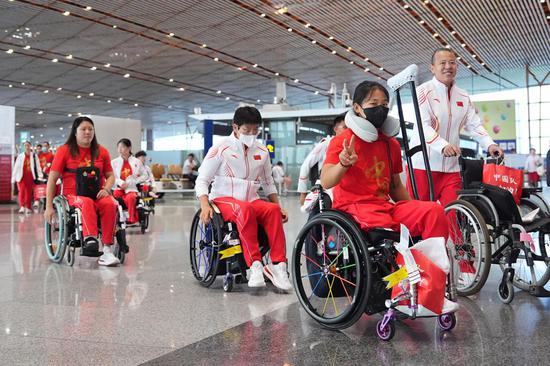
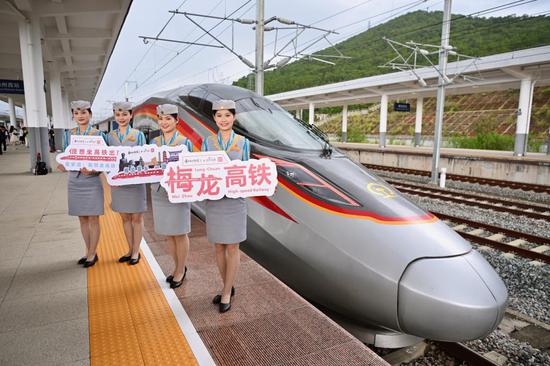




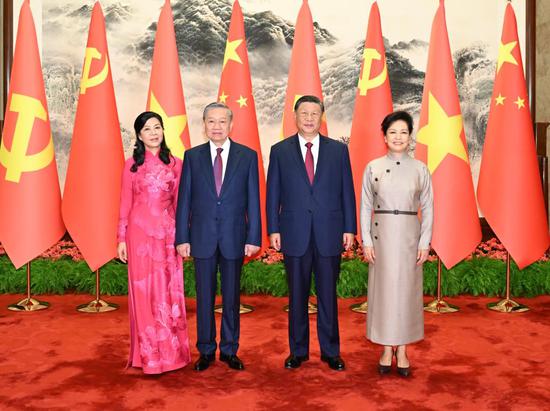

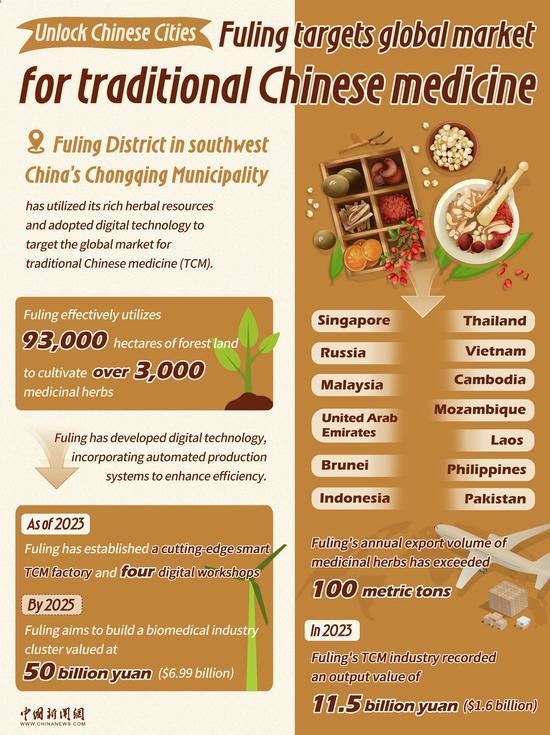
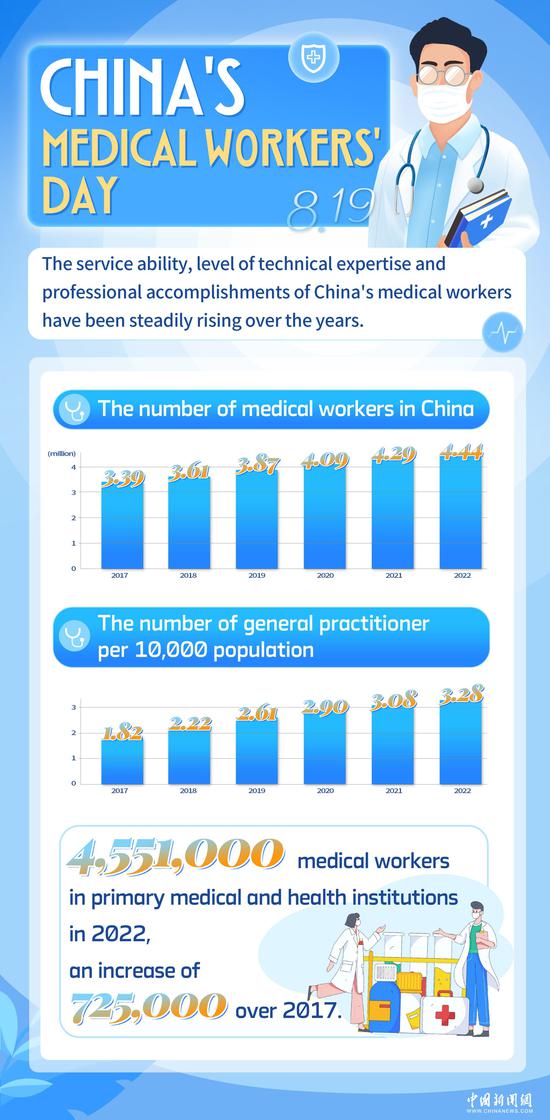














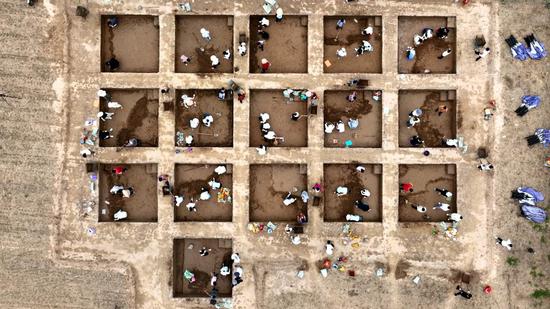












 京公网安备 11010202009201号
京公网安备 11010202009201号